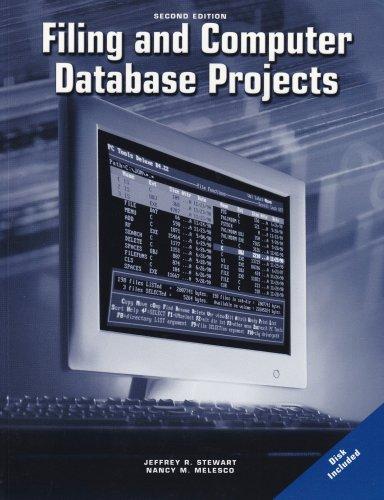Question
C languageDebug this code #include #include #define SIZE (10) typedef struct _debugLab { int i; char c; } debugLab; // Prototypes void PrintUsage(char *); void
C languageDebug this code
#include
#include
#define SIZE (10)
typedef struct _debugLab
{
int i;
char c;
} debugLab;
// Prototypes
void PrintUsage(char *);
void DebugOption1(void);
void DebugOption2(void);
void DebugOption3(void);
int DebugOption4(int *arr, int n);
int main(int argc, char **argv)
{
int option = 0;
int sum = 0;
int arr[] = { 1, 2, 3, 5, 7, 11, 13, 17, 19 }; // Sum equals 78
if (argc == 1)
{
PrintUsage(argv[0]);
exit(0);
}
option = atoi(argv[1]);
if (option == 1)
{
DebugOption1();
}
else if (option == 2)
{
DebugOption2();
}
else if (option == 3)
{
DebugOption3();
}
else if (option == 4)
{
sum = DebugOption4(arr, 9);
fprintf(stdout, "The sum of the values in the array \"arr\" is: %d ", sum);
}
else
{
PrintUsage(argv[0]);
exit(0);
}
}
void PrintUsage(char *command)
{
fprintf(stderr, "Usage: %s [1 2 3 4] ", command);
fprintf(stderr, " 1 = Mode 1 ");
fprintf(stderr, " 2 = Mode 2 ");
fprintf(stderr, " 3 = Mode 3 ");
fprintf(stderr, " 4 = Mode 4 ");
}
void DebugOption1()
{
int i, j;
int sum = 0;
char charArray[SIZE];
fprintf(stdout, "Here we are in DebugOption1() ");
for (i = 0; i < SIZE; i++)
{
sum += sum + i;
}
fprintf(stdout, "The sum of integers from 0 to %d is: %d ", SIZE, sum);
}
void DebugOption2()
{
char num;
int i, j;
for (i = 0; i < 25; i++)
{
num = 0;
for (j = 0; j <= i; j++)
{
num += j;
}
fprintf(stdout, "The sum of the numbers from 0 to %d is: %d ", i, num);
}
}
void DebugOption3()
{
debugLab *dl1 = NULL;
debugLab *dl2 = malloc(sizeof(debugLab)); // Always check for a NULL Pointer after a call to malloc
debugLab dl3;
dl3.i = 37;
dl3.c = 'A';
dl2->i = 36;
dl2->c = 'B';
dl1->i =35; // Oops! dl1 is NULL!
dl1->c = 'C';
}
int DebugOption4(int *arr, int n)
{
int i;
int sum=0;
for (i=0;1 sum += arr[i]; return sum; }
Step by Step Solution
There are 3 Steps involved in it
Step: 1

Get Instant Access to Expert-Tailored Solutions
See step-by-step solutions with expert insights and AI powered tools for academic success
Step: 2

Step: 3

Ace Your Homework with AI
Get the answers you need in no time with our AI-driven, step-by-step assistance
Get Started


